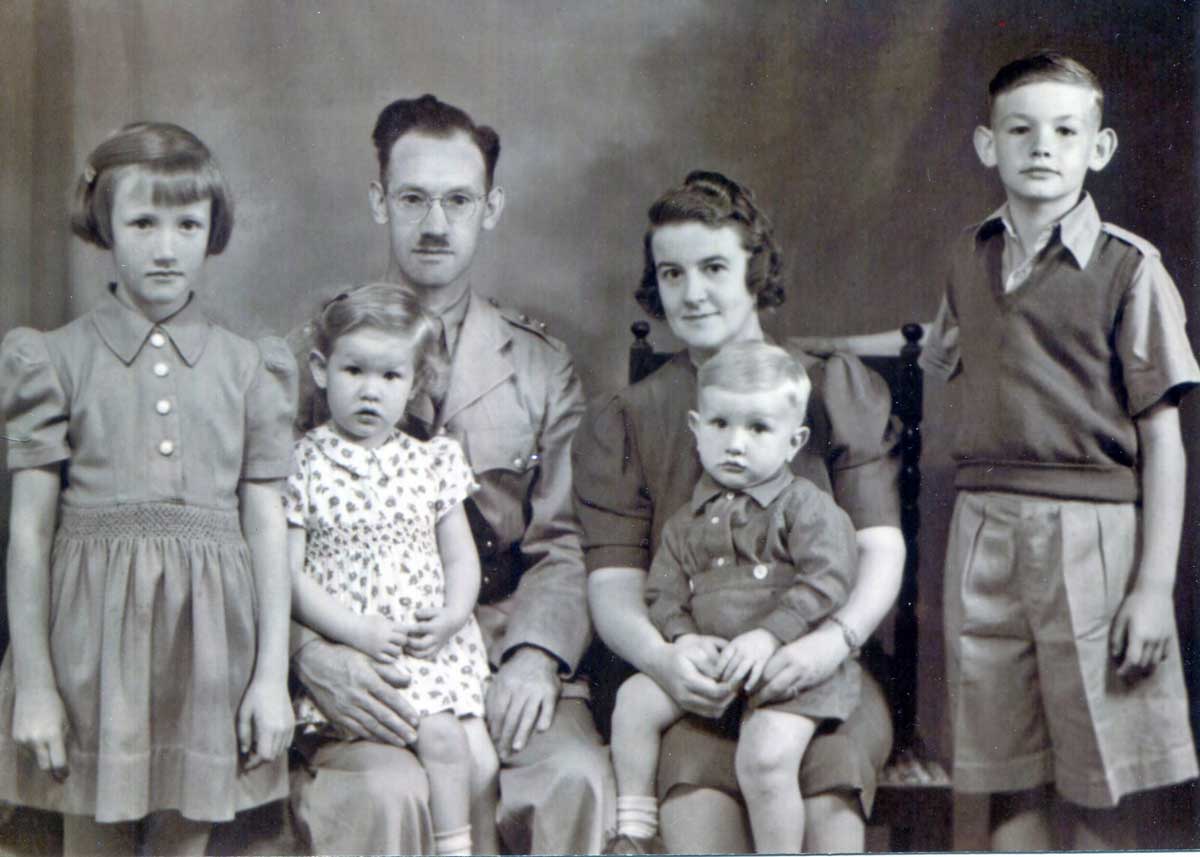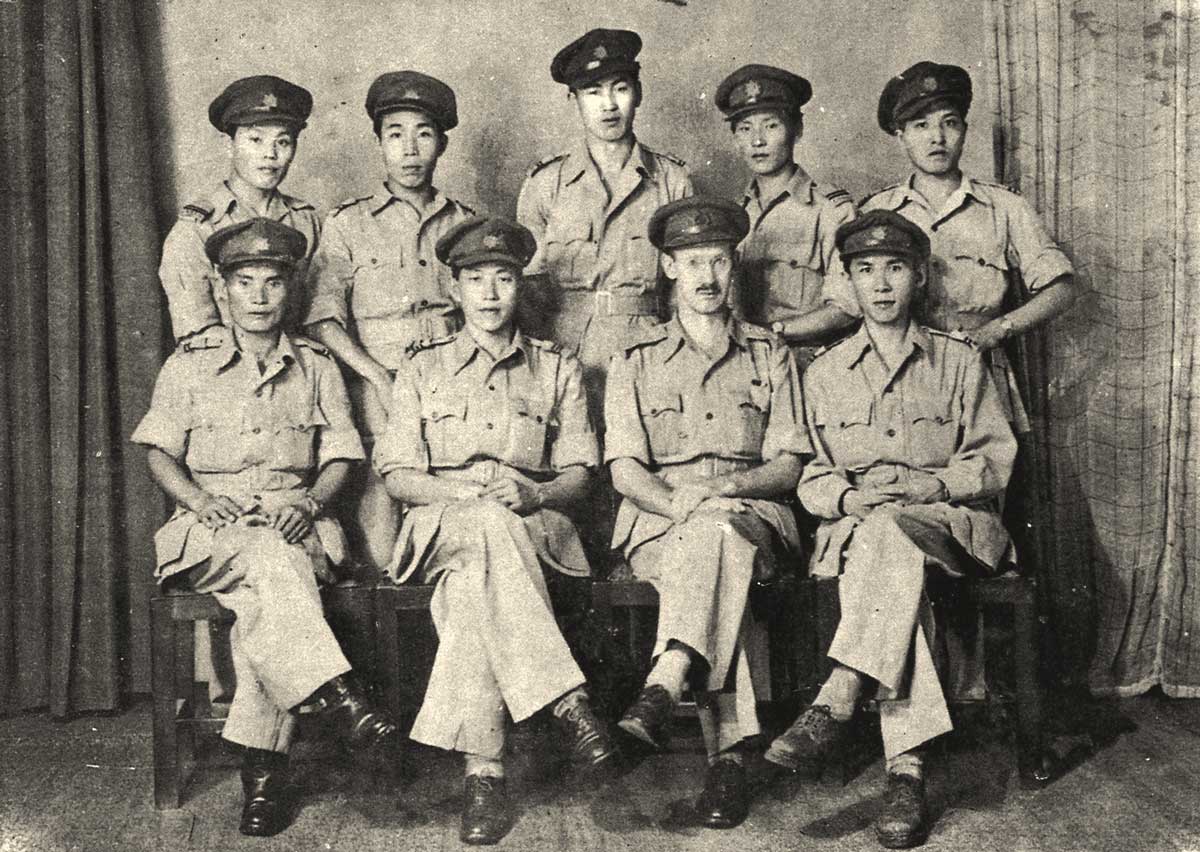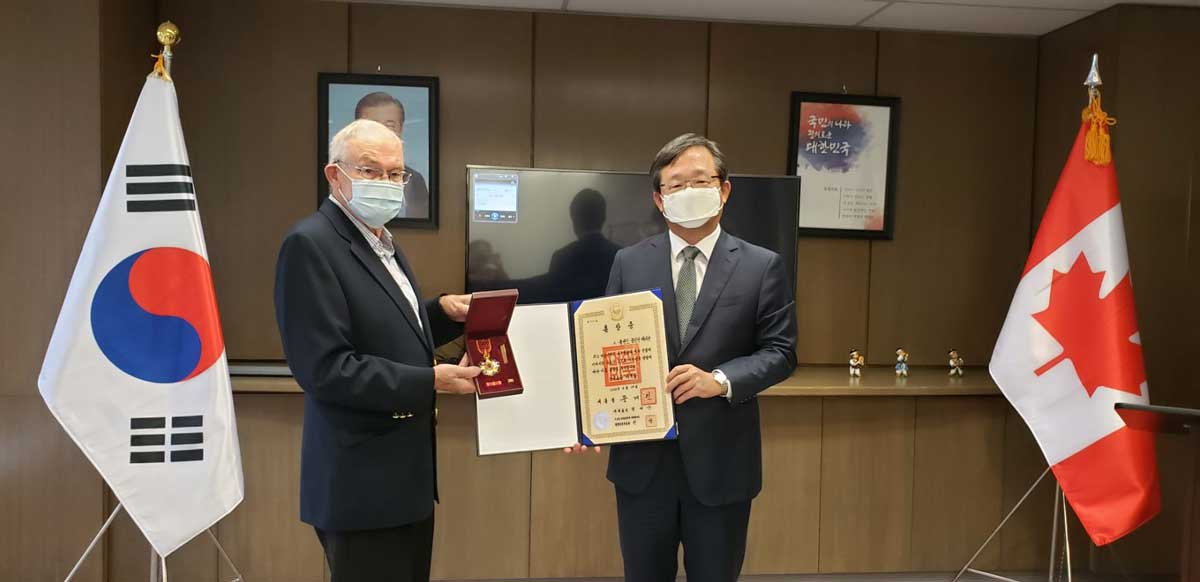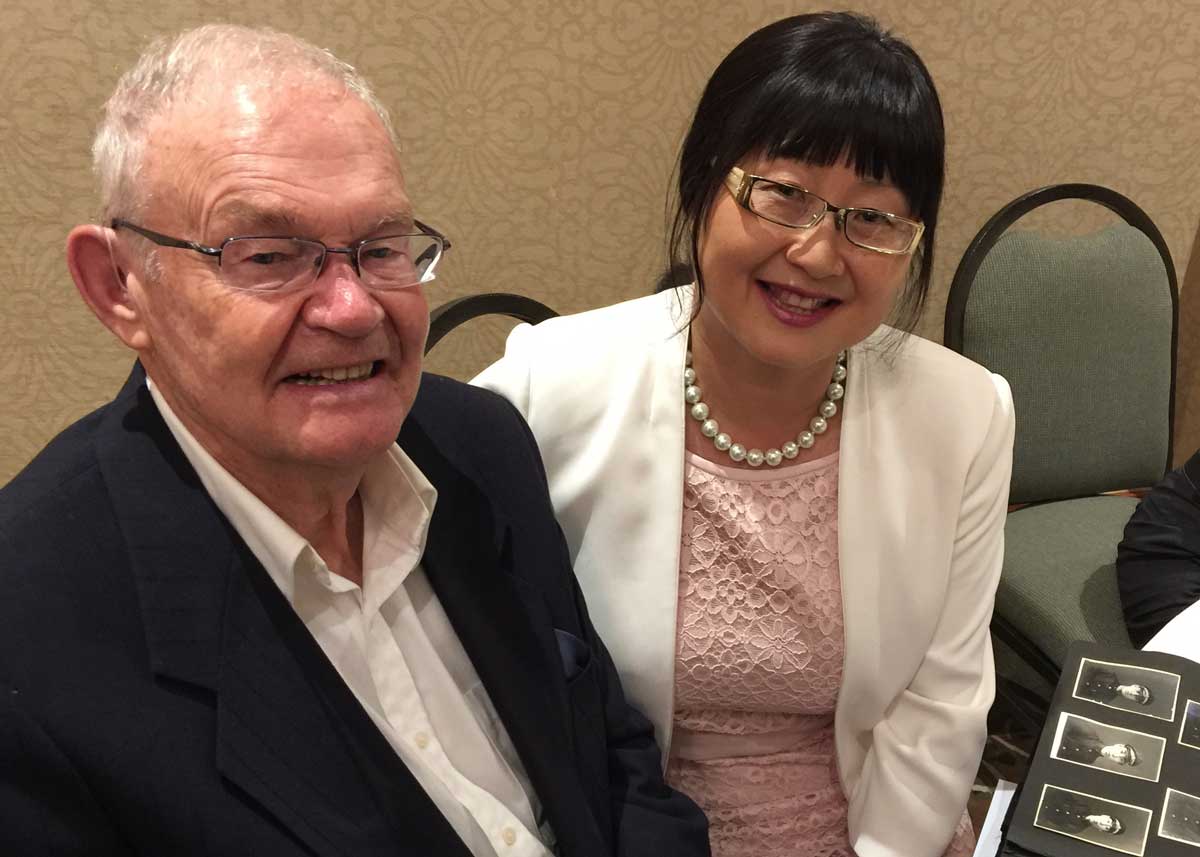Remembering our heroes: Senator Martin honours Roland Clinton Bacon

Capt. Roland Bacon spent much of his life in the classroom as an academic, but this remarkable Nova Scotian was killed far from home on the front lines in the Battle of Mandalay in Burma (Myanmar) during the Second World War.
Before he was assigned as a liaison officer in the British army, Capt. Bacon moved to Korea in 1931 with his wife, Elizabeth Pearl MacRae. She was the daughter of Rev. Duncan MacRae, who went to Korea in 1898 as one of the first three Canadian missionaries sent by the Presbyterian Church. Rev. MacRae and his wife spent more than 40 years in Korea to help establish the Presbyterian church and open several English schools in and around present-day North Korea.
Capt. Bacon, a father of four, taught boys at the English schools, but was expelled by the ruling Japanese government in Korea in 1943. Instead of returning to Canada, he went to nearby India to serve in the war. Known for his exceptional grasp of the Korean language and culture, he was chosen to aid the British Special Operations Executive, a top-secret group of spies and saboteurs who made outsized contributions to the Second World War.
His mission: psychological warfare. It is said this group of soldiers, assigned to an Indian Field Broadcasting Unit, would sneak up on Japanese troops with a radio and amplifier to broadcast grim news about Japanese forces to make them surrender. Capt. Bacon would also interrogate Japanese prisoners and interpret their maps and documents for the benefit of allied forces.
During the Battle of Mandalay in 1945, Capt. Bacon and his team became trapped under heavy fire. In a bid to save his team, he climbed a tree to locate the source of the assault with a pair of binoculars. He was shot several times and fell to the ground.


Two days later, on March 13, 1945, he died in a hospital northwest of Mandalay. Capt. Bacon is buried at the Taukkyan War Cemetery in Myanmar (Burma), a cemetery dedicated to allied soldiers from the British Commonwealth. On September 24, 2020, Dr. Hugh Bacon received the Order of Merit for National Foundation, posthumously awarded to his father by the Government of Korea.

British Columbia Senator Yonah Martin, the first Canadian senator of Korean descent, first met the eldest son of Capt. Bacon, Dr. Hugh Bacon, in September 2017. Dr. Hugh Bacon brought a yearbook with black and white photos of Korean students from one of the English schools in which his father had taught. Senator Martin said the English writing on the chalkboard in one of the photos was as beautiful as her father’s handwriting in his journals.
“In that moment, I understood where and how my father’s love of English must have been inspired — in a classroom taught by Canadian missionaries in Korea, just as depicted in the photos of this old yearbook,” Senator Martin said.

The Seoul-born senator is the driving force behind Korean War Veterans Day in Canada. This year marks the 70th anniversary of Canada entering the Korean War, which saw more than 26,000 Canadians serving on land, sea and air, and more than 7,000 serving in peacekeeping duties. During the war, 516 paid the ultimate sacrifice. Their names are found in the Korean War Book of Remembrance, which has been temporarily relocated to the Room of Remembrance on Parliament Hill.
"I also want to thank our heroes of the Korean War. Without these brave Canadians who answered the call to serve during the Korean War, I certainly would not be alive today. I owe them my life,” Senator Martin said.
“Even during these uncertain times, we must keep these stories and memories alive so that their sacrifices are never forgotten.”
Capt. Bacon is commemorated on page 616 of the Second World War Book of Remembrance.
Related articles
Tags
Committee news
Remembering our heroes: Senator Martin honours Roland Clinton Bacon

Capt. Roland Bacon spent much of his life in the classroom as an academic, but this remarkable Nova Scotian was killed far from home on the front lines in the Battle of Mandalay in Burma (Myanmar) during the Second World War.
Before he was assigned as a liaison officer in the British army, Capt. Bacon moved to Korea in 1931 with his wife, Elizabeth Pearl MacRae. She was the daughter of Rev. Duncan MacRae, who went to Korea in 1898 as one of the first three Canadian missionaries sent by the Presbyterian Church. Rev. MacRae and his wife spent more than 40 years in Korea to help establish the Presbyterian church and open several English schools in and around present-day North Korea.
Capt. Bacon, a father of four, taught boys at the English schools, but was expelled by the ruling Japanese government in Korea in 1943. Instead of returning to Canada, he went to nearby India to serve in the war. Known for his exceptional grasp of the Korean language and culture, he was chosen to aid the British Special Operations Executive, a top-secret group of spies and saboteurs who made outsized contributions to the Second World War.
His mission: psychological warfare. It is said this group of soldiers, assigned to an Indian Field Broadcasting Unit, would sneak up on Japanese troops with a radio and amplifier to broadcast grim news about Japanese forces to make them surrender. Capt. Bacon would also interrogate Japanese prisoners and interpret their maps and documents for the benefit of allied forces.
During the Battle of Mandalay in 1945, Capt. Bacon and his team became trapped under heavy fire. In a bid to save his team, he climbed a tree to locate the source of the assault with a pair of binoculars. He was shot several times and fell to the ground.


Two days later, on March 13, 1945, he died in a hospital northwest of Mandalay. Capt. Bacon is buried at the Taukkyan War Cemetery in Myanmar (Burma), a cemetery dedicated to allied soldiers from the British Commonwealth. On September 24, 2020, Dr. Hugh Bacon received the Order of Merit for National Foundation, posthumously awarded to his father by the Government of Korea.

British Columbia Senator Yonah Martin, the first Canadian senator of Korean descent, first met the eldest son of Capt. Bacon, Dr. Hugh Bacon, in September 2017. Dr. Hugh Bacon brought a yearbook with black and white photos of Korean students from one of the English schools in which his father had taught. Senator Martin said the English writing on the chalkboard in one of the photos was as beautiful as her father’s handwriting in his journals.
“In that moment, I understood where and how my father’s love of English must have been inspired — in a classroom taught by Canadian missionaries in Korea, just as depicted in the photos of this old yearbook,” Senator Martin said.

The Seoul-born senator is the driving force behind Korean War Veterans Day in Canada. This year marks the 70th anniversary of Canada entering the Korean War, which saw more than 26,000 Canadians serving on land, sea and air, and more than 7,000 serving in peacekeeping duties. During the war, 516 paid the ultimate sacrifice. Their names are found in the Korean War Book of Remembrance, which has been temporarily relocated to the Room of Remembrance on Parliament Hill.
"I also want to thank our heroes of the Korean War. Without these brave Canadians who answered the call to serve during the Korean War, I certainly would not be alive today. I owe them my life,” Senator Martin said.
“Even during these uncertain times, we must keep these stories and memories alive so that their sacrifices are never forgotten.”
Capt. Bacon is commemorated on page 616 of the Second World War Book of Remembrance.


